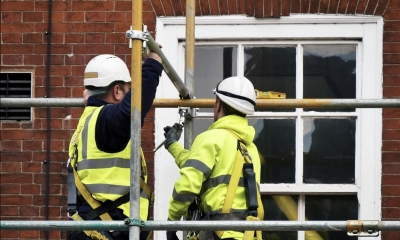
The following is an overview of important legislation that might be particularly relevant to your hairdressing business.
What licences does a hairdressing business need?
If you plan to play background music in the salon or when you put phone callers on hold you will need to obtain licences from PPL and from PRS for Music. There is an annual fee for each of these licences.
What legislation applies to hairdressing businesses?
Aside from the requirement for some hairdressers to register with their local authority, there is no legislation that applies specifically to the hairdressing industry. However, some local authorities have made bye-laws that apply to hairdressers in their area. Your local authority will be able to tell you if you're affected by any bye-laws.
Other legislation that is particularly relevant to hairdressers includes:
- the Control of Substances Hazardous to Health (COSHH) Regulations which apply to the use and storage of any potentially hazardous substances such as peroxide and so on
- the Environmental Protection Act and regulations made under it (particularly the Hazardous Waste Regulations) which apply to the disposal of waste chemicals
- the Cosmetic Products Enforcement Regulations which restrict the use of certain chemicals in hair dyes
- the Provision and Use of Work Equipment Regulations which require portable electrical appliances like hairdryers and straighteners to be regularly tested to make sure they are safe. This is called PAT testing
Your local environmental health department will be able to advise you on how the above affects your business.
If you offer ear piercing you should also be aware that regulations strictly limit the nickel content of ear piercing products. So you should only buy them from reputable suppliers.
If you plan to offer sunbed sessions remember that young people under 18 throughout the UK are banned from using commercial sunbeds and that the maximum legal UV output for sunbed tubes is 0.3 watts per square metre. Trading standards officers may inspect your premises to make sure your sunbed tubes are legal.
Employment legislation
Anyone employing staff must comply with employment legislation. Important areas of legislation include recruitment, employment contracts, pay, working hours, holidays, employment policies, sickness, maternity, paternity, discrimination, discipline, grievances, dismissals, redundancies and employment tribunals.
Health & Safety, fire
You must comply with workplace health and safety and fire safety legislation.
Insurance for a hairdressing business
When you start up in business you will need insurance cover. Contact an insurer and explain to him or her exactly how your business will operate - they will then recommend what cover you should have and give you an idea of cost.
The types of insurance cover needed by your business might include:
- treatment cover
- premises, premises contents and stock
- employers liability (if you employ staff)
- business interruption
- public liability (this is particularly important)
- motor insurance (for business vehicles)
The National Hairdressers Federation (NHF) offers members a 20% discount on specialist salon insurance provided by Coversure. The NHF website contains more information in the members' benefits section.


